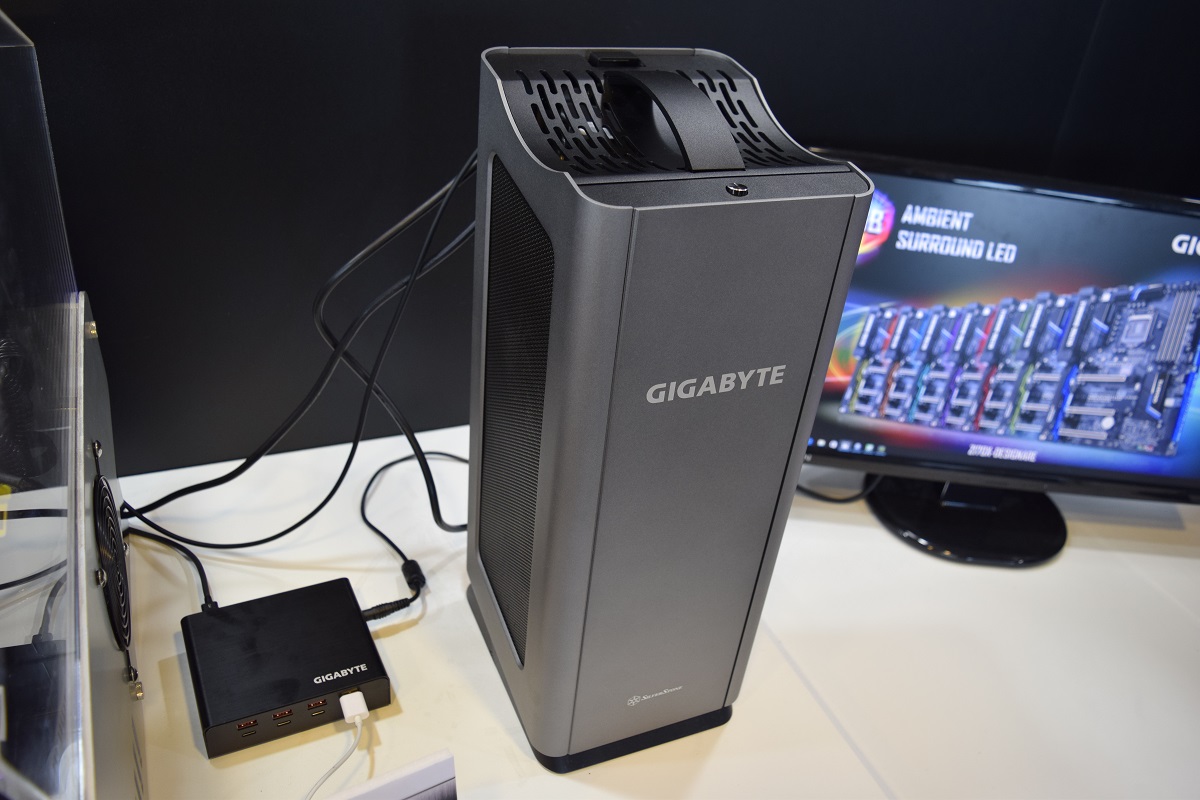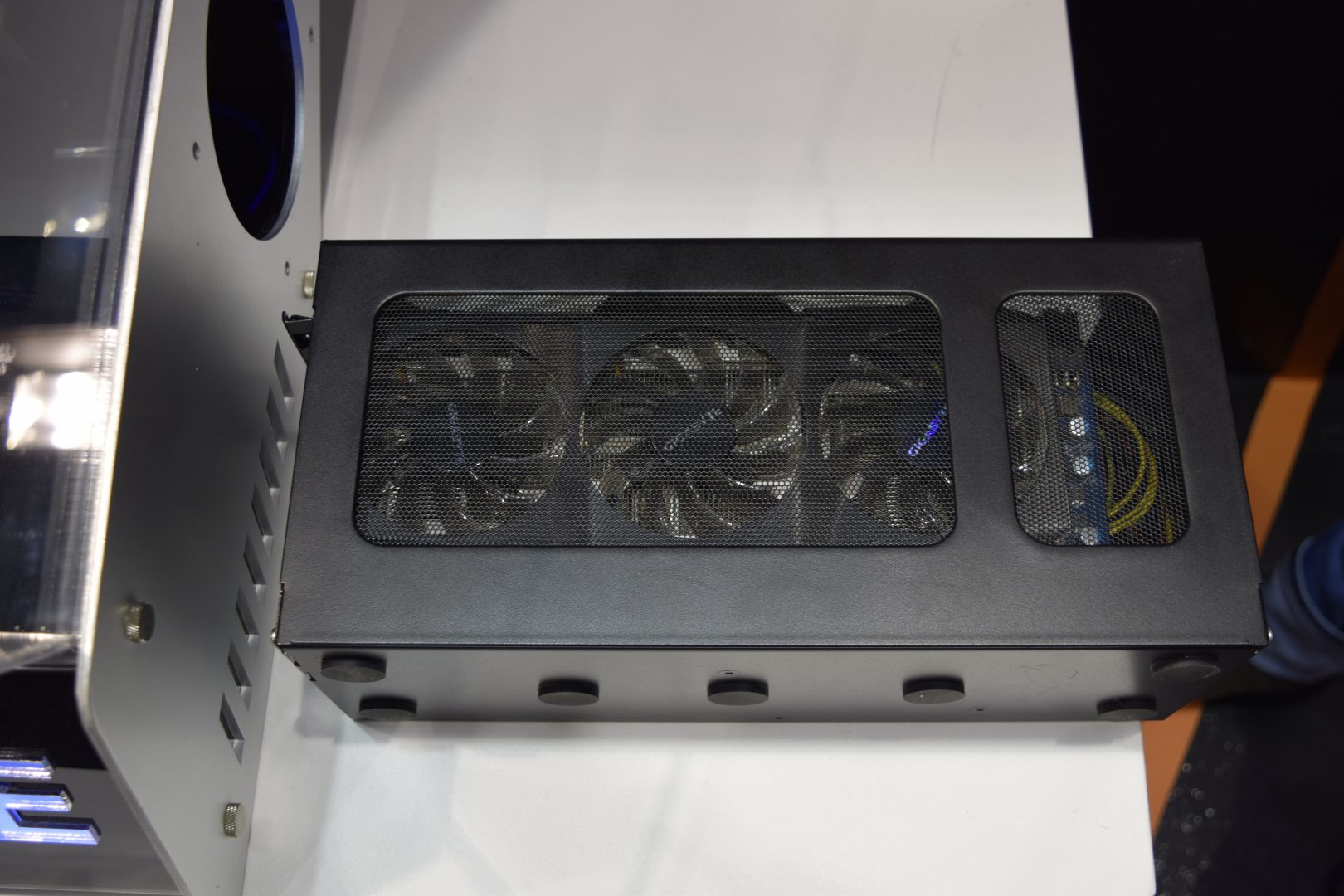Having a gaming laptop is a bliss, you can take out your powerhouse anywhere and happily game with your portable machine. But one down side is the missing horsepower that laptop GPUs lack versus their desktop counterpart. Using a DIY (read: Do it yourself) external GPU dock has been in news for some years but since the time Alienware kicked in its Alienware “graphics amplifier” to support its gaming laptops with desktop GPUs, the race began with other manufacturers too.
[alert type=blue ]Razer brought up the Razer “Core” and even PowerColor (a renowned AMD board partner) launched the Devil box. [/alert]
Even Asus recently revealed their ROG XG2 GPU dock to bring out the best of your gaming laptop. It’s legible to expect a similar device from the motherboard giant from Taiwan, Gigabyte technologies.

First and foremost, this is very early development design and the finished product is highly suspected to “not” to look like this. [highlight ]Every external GPU dock essentially has a circuit with a full size PCIe 3.0 x16 slot to house in the Desktop GPUs and an embedded power supply unit to power the GPU all housed inside an enclosure which opens to pop in or out your precious Graphics card[/highlight]. It uses wither a proprietary port or Thunderbolt port to connect to your laptop.
Portability comes at a price of lower performance vs desktops. Same with gained performance, it costs portability. However, GPU docks usually sit on your work table and provide your laptop that steroid to match the leisure of Desktop gaming.

Coming to the gigabyte’s prototype, tomshardware states it is pretty short on power delivery, has a 250W PSU to feed the GPU. This is pretty low considering the Razer Core and Powercolor Devil box both of which have 500W and on top of that, The Asus ROG XG2 has a 680W PSU.
[highlight ]250W is enough for a 175W card, cards with higher power draw are not recommended with this kind of rated PSU since keeping a 25% lower power draw on highest possible is the safe whistle of joy.[/highlight]
Gigabyte however plans to adopt a 350W PSU which would easily support GPUs with 262W mean power draw, still enough to run a behemoth like NVIDIA’s latest and fastest offering, the GTX 1080 with ease. However, dock components can itself consume up to 100W so there’s not a clear word on efficiency or power figures.
The connectivity includes a Thunderbolt 3 over the USB Type-C port and can be supported by any laptop or small form factor PC which uses these ports.
Aesthetics is totally out of question here because the prototype doesn’t look like anything close to a finished product and unfortunately we don’t have much info on pricing either. However, stay tuned to get more insights on future news about this GPU dock and other Gigabyte releases.
[highlight ]We value your opinion, so feel free to share your opinion to the community about the external GPU docks.[/highlight]




